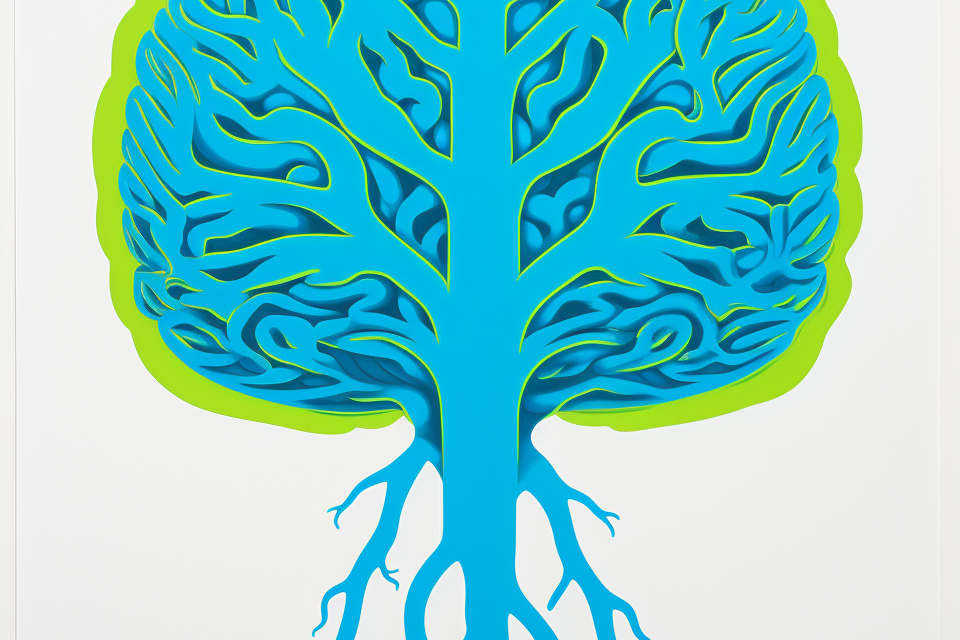What Exactly Is a Good Habit?

Let’s start by unpacking the term “good habit.” A good habit is a positive behavioral pattern that enhances your quality of life. Simple, yet deeply significant. Think of it as a reliable sidekick in the grand narrative of your life, consistently guiding you in the right direction. Whether it’s rising early, exercising, or choosing an apple over a bag of chips, these habits lay the groundwork for a fulfilling life.
The Influence of Good Habits on Daily Life
Why should you invest in cultivating good habits now? Imagine your life as a magnificent tapestry (a woven artwork or carpet). Each thread represents a decision, an action, or a habit. The intricate weaving of these threads—your habits—day after day shapes the quality of this tapestry, not just a few bold strokes.
Forget the notion of some cataclysmic, life-altering event as the only route to change. Most real transformation happens through a process of iterative, continual improvement. Each thread, a tiny habit or choice, contributes to the overall picture. It’s not one dramatic brushstroke that makes a masterpiece; it’s a compilation of tiny, consistent actions, and tiny consistent improvements. So, focus on weaving one good thread (habit) at a time. You’ll soon realize how these small steps accumulate to create the fabric of your life.

Good habits are your allies in this endeavor, helping you craft a life that’s not just bearable but extraordinary. They’re the unsung heroes turning your dreams and aspirations into reality. In the realm of personal development, good habits form the bedrock for disciplines like time management, financial independence, and emotional well-being. They’re the silent engines fueling your journey toward growth and enlightenment. And let’s not overlook their significance in relationships, leadership, and even your spiritual journey.
Habit Formation: A Scientific Approach
So how do these behaviors come to life? Science offers some fascinating insights. A habit consists of three components: a cue, a routine, and a reward—a loop that neuroscientists and psychologists find intriguing. Picture this: Your alarm clock (cue) goes off, you rise from bed (routine), and you feel rejuvenated (reward). Once established, this loop operates almost automatically, like a software program running in the background of your mind.
Research indicates that the basal ganglia, an ancient part of the brain, plays a crucial role in habit formation. It functions like the brain’s autopilot, conserving mental energy by turning repetitive actions into habits. But beware, this is a double-edged sword. While it makes sustaining healthy habits easier, it also means that detrimental habits can become deeply rooted.
So, are you excited to delve deeper into the transformative power of good habits? Strap in, because we’re about to embark on a comprehensive exploration that will not only enlighten you but also equip you with actionable steps to elevate your life.
The Study of Habits
The Intricate Psychology of Habits
Let’s dive deeper into the mechanics of what makes habits so compelling. They emerge at the intersection of psychology and neuroscience as more than mere repeated actions. These habits are deeply embedded in our psyche and are shaped by various factors like motivation, environment, and even emotional state.
Psychologists often employ the term “operant conditioning,” a learning mechanism where the outcome of an action influences its likelihood of recurrence. Simply put, if an action brings joy or alleviates discomfort, you’re more inclined to do it again. It’s as if your mind is saying, “Hey, that felt good. Let’s go for another round!”
The Habit Loop Unveiled
So, how do these habits become ingrained? Welcome to the “habit loop,” popularized by Charles Duhigg in his book “The Power of Habit.” This loop consists of three key components: the cue, the routine, and the reward.
- Cue: This is the trigger that initiates the behavior. It could range from a specific time of day to an emotional state.
- Routine: This is the actual behavior, the action you execute in response to the cue.
- Reward: This is the payoff, the pleasurable sensation or relief that reinforces the behavior.
Imagine you’re trying to establish the habit of morning runs. The cue might be your alarm ringing, the routine is the run itself, and the reward could be a rush of endorphins or a satisfying, guilt-free breakfast afterward. Once established, this loop becomes a self-sustaining cycle that operates almost on autopilot.
Your Brain, the Habit Architect
So, what’s happening in your brain during all this? The basal ganglia, an ancient part of the brain crucial for motor control and emotions, takes center stage. When you repeat an action, the basal ganglia recognize the pattern and take over, automating the process. It’s your brain’s way of saying, “I’ve got this; you can focus elsewhere.”
This automation is a survival mechanism. It once helped our ancestors conserve mental energy for more urgent tasks, like evading predators. Nowadays, it enables you to drive to work without consciously thinking about each turn.
The Power of Repetition and Consistency
The key is that consistency and repetition are essential for a habit to take root. Think of them as the soil and water nourishing the seed of your new habit. Each time you complete the habit loop, neural pathways in your brain strengthen, making it easier to execute the habit the next time. It’s akin to forging a path through a forest; the more you traverse it, the more distinct and navigable the trail becomes.
Actions evolve into routines through consistency, and those routines solidify into unshakeable habits through repetition. It’s not about making monumental changes overnight, but about taking incremental steps that accumulate over time. So, if you’re committed to cultivating great habits, think long-term. Your future self will thank you.
The Advantages of Good Habits
The Mental Health Ripple Effect
Let’s kick off with a subject close to everyone’s heart: mental health. Good habits act like a soothing balm for the mind. They offer structure, a framework for navigating the complexities of daily life. By sticking to a routine, you alleviate the mental burden of decision-making. Gone are the days of standing in front of the fridge, pondering what to eat for breakfast. This mental freedom can be liberating, allowing your mind to focus on higher-order tasks and creative pursuits.
Moreover, successfully maintaining a good habit can boost your self-esteem and self-efficacy. Each time you complete your morning run or finish a work task ahead of schedule, you send a potent message to your brain: “I’ve got this.” And that’s a game-changer for mental well-being.
Boosting Productivity and Efficiency
Next, let’s turn to the darling of the corporate world: productivity. Good habits are your secret arsenal in a culture obsessed with hustle and grind. Think of them as productivity ninjas, quietly enhancing your day.
A habit like time-blocking, for instance, can turn a chaotic, stressful workday into a well-orchestrated symphony of productivity. Or consider taking regular breaks, which may seem counterintuitive but actually boosts efficiency by mitigating burnout. The key takeaway? Good habits streamline your actions and set you up for success, empowering you to master your own time and energy.
Improving Overall Happiness and Life Satisfaction
Now, let’s zoom out and look at the bigger picture—your overall well-being and life satisfaction. In this narrative, good habits are the unsung heroes. They help maintain a balanced lifestyle that encompasses not just work, but also relationships, hobbies, and even your spiritual journey.
A simple habit like nightly journaling can offer valuable insights into your emotional state, equipping you to navigate life’s highs and lows with greater resilience. Or cultivate the habit of regular exercise, which not only keeps you physically fit but also releases endorphins, those feel-good hormones that elevate your mood. In essence, good habits are like spices in a well-cooked meal, each adding its own unique flavor but all contributing to a fulfilling whole.
Stress-Relieving and Positivity-Inducing Powerhouses
Lastly, let’s explore how good habits can be your allies in combating stress and negativity. Stress often stems from feeling out of control, as if you’re a ship adrift at sea. Good habits act as your anchor, offering stability and control.
Practices like mindfulness and deep breathing can actively counter stress by triggering the body’s relaxation response. And don’t underestimate the transformative power of a positive mindset. Even if you’ve been a lifelong pessimist, habits like gratitude journaling or affirmations can rewire your brain to focus on the positive, effectively turning you into an optimist.
Misconceptions About Habit Formation
The Fallacy of the 21-Day Rule
Let’s kick off with one of the most pervasive myths in the realm of habit formation: the 21-day rule. You’ve likely heard the adage, “Do something for 21 days, and it becomes a habit.” While this notion is seductive in its simplicity, it’s not entirely accurate. This myth originated from Dr. Maxwell Maltz, a plastic surgeon who noted that it took his patients about 21 days to adjust to their new appearances. However, this observation was more anecdotal than scientific.
Recent research suggests that the time required to form a habit can vary significantly depending on the individual and the complexity of the behavior. According to a study in the European Journal of Social Psychology, it took participants anywhere from 18 to 254 days to form a habit. So if you’re on day 22 and still struggling to make your new behavior stick, give yourself a break. Habit formation is a marathon, not a sprint.
Understanding the Nuance Between Habits and Routines
Another common misconception is conflating the terms ‘habits’ and ‘routines.’ While they’re closely related, they’re not identical twins. Think of them more like siblings—similar, yet distinct. A routine is a sequence of actions you regularly perform. A habit, however, occurs without conscious thought.
Here’s how to distinguish them: routines require effort and conscious decision-making, whereas habits are routines that have become second nature. For instance, brushing your teeth upon waking is a routine. But if you find yourself reaching for the toothbrush without even thinking, you’ve cultivated a habit.
The Willpower Myth
Ah, willpower—the mythical creature of habit formation. Many people believe that building good habits is all about sheer willpower. While willpower can play a role, especially in the early stages, it’s not the ultimate solution. Relying solely on willpower is like trying to climb a mountain with a backpack full of rocks; it’s possible but unnecessarily hard.
Research shows that willpower is a finite resource that dwindles throughout the day, a phenomenon known as “ego depletion.” So, if you’re depending solely on willpower to establish a new habit, you’re setting yourself up for disappointment. The real key to habit formation lies in crafting an environment where the desired behavior is easy and the undesired behavior is challenging. It’s less about gritting your teeth and more about setting the stage for success.
Good Habit Formation Techniques
The Genius of Habit Stacking
So, how can you actually cultivate these life-altering habits? One highly effective strategy is habit stacking, popularized by productivity expert S.J. Scott. The idea is to tack a new habit onto an existing one. Say you already brew coffee every morning; you could add the new habit of taking vitamins right after you pour your cup.
The brilliance of habit stacking lies in leveraging established routines to introduce new ones. You’re essentially telling your brain, “After I do [current habit], I will do [new habit].” This creates a natural cue, making the new behavior more likely to stick.
The Transformative Power of Atomic Habits
Next up is the concept of atomic habits, introduced by James Clear. The aim here is to make small, incremental changes that are so easy you can’t say no. Think of it as the compound interest of self-improvement; minor adjustments can accumulate into significant transformations over time.
For instance, if you want to cultivate a reading habit, start with just one page a day. It’s a minimal commitment, but it sets the stage for future growth. Gradually increase the number of pages as you get more comfortable, and before you know it, you’ll be devouring books.
Setting Specific and Achievable Goals
Now let’s talk about goals, the guiding stars of habit formation. The key is to set specific and achievable objectives. Vague goals like “I want to get fit” won’t cut it. Instead, aim for something concrete, like “I will run for 20 minutes every morning.” This gives you a clear target, making it easier to monitor your progress.
Remember, the idea isn’t just to set goals but to make them achievable. Overly ambitious goals can lead to burnout and demotivation. Start small, gain momentum, and then gradually raise the stakes.
The Value of Habit Trackers
Keeping tabs on your progress is crucial, and that’s where habit trackers come in handy. Whether you use a specialized app or good old pen and paper, tracking helps keep you accountable. Each time you complete a habit, you get a small sense of achievement, which can be incredibly motivating.
Habit trackers also offer valuable insights. You can identify patterns, like specific days when you struggle the most, and then take corrective measures. It’s akin to having a personal coach providing real-time feedback to help you fine-tune your approach.
The Efficacy of the Tiny Habits Method
Lastly, let’s explore the Tiny Habits method, developed by behavior scientist BJ Fogg. This approach emphasizes the ease and simplicity of starting a new habit. The aim is to make the new behavior so straightforward that you can do it even when your motivation and willpower are at their lowest.
If you want to establish a flossing habit, for example, start with just one tooth. Yes, you read that right—just one tooth. Because the action is so quick and simple, there’s virtually no barrier to entry. Once the habit takes root, you can gradually expand its scope.
Overcoming Challenges and Breaking Bad Habits
Unearthing the Root of Bad Habits
Let’s pivot for a moment to discuss the darker side of habits. These are the behaviors that, despite our best intentions, seem to stick around like uninvited guests. The first step in evicting them is understanding their root cause. Bad habits often serve as coping mechanisms for underlying issues like stress, boredom, or emotional turmoil.
For instance, if you find yourself mindlessly snacking late at night, it might be driven by something other than hunger. Maybe it’s a way to cope with stress or loneliness. Pinpointing the root cause allows you to address the issue at its core, making it easier to swap out the unhealthy behavior for a healthier one.
Behavior Modification Strategies
Once you’ve identified the underlying cause, the next step is to employ behavior modification techniques. One effective approach is the “replacement method,” which involves substituting a bad habit with a good one. If you’re trying to quit smoking, for example, consider taking deep breaths or sipping water instead of reaching for a cigarette.
Another tactic is the “gradual reduction method.” Rather than going cold turkey, which can be a shock to the system, try incrementally reducing the frequency of the undesirable habit. If you aim to cut back on sugary drinks, start by reducing your intake by one can per week until you’ve completely phased it out.
The Power of Immediate Rewards
Now let’s delve into an often-overlooked tool in habit formation: instant rewards. The human brain is wired to favor immediate gratification over long-term benefits, which can be a stumbling block when trying to establish new habits. However, you can hack this system by associating immediate rewards with your new behaviors.
For instance, if you’re working on building an exercise habit, treat yourself to a small reward right after each workout, like a smoothie or an episode of your favorite show. This creates a positive association in your brain, increasing the likelihood that you’ll stick with the new habit.
Accountability and Crafting a Supportive Environment
Finally, let’s discuss the role of environment and accountability, two factors that can either make or break your habit-forming journey. A supportive environment reduces friction, making it easier to perform the desired behavior. Placing a fruit bowl on the counter instead of cookies, for example, can make a significant difference if you’re trying to eat healthier.
Accountability adds an extra layer of motivation. Having someone to answer to, whether it’s a dedicated accountability partner or a community of like-minded individuals, can dramatically boost your chances of success. It’s like having a personal cheering squad that celebrates your wins and helps you navigate your setbacks.
Real-life Examples and Case Studies
Case Study 1: James Clear
James Clear, the mind behind “Atomic Habits,” is a living testament to the transformative power of habit formation. After a severe sports injury in high school left him relearning basic functions, he discovered the concept of small, incremental changes. Starting with tiny improvements and focusing on the process over the outcome, these atomic habits not only led to his full recovery but also catapulted him into a successful career as a writer and speaker. His journey exemplifies how minor adjustments can lead to monumental life shifts.
Case Study 2: Hal Elrod
Hal Elrod, the creator of “The Miracle Morning,” underwent a life-altering experience at age 20 that led him to reassess his life and habits. He crafted a morning routine that incorporated practices like meditation, affirmations, and exercise. This regimen didn’t just aid his recovery; it propelled him into a life of success and fulfillment. His Miracle Morning routine has inspired thousands to revamp their mornings and, by extension, their lives, showcasing that a well-designed routine can be a catalyst for success.
Case Study 3: J.K. Rowling
J.K. Rowling, the celebrated author of the Harry Potter series, faced numerous setbacks before her meteoric rise. From living on welfare to multiple publisher rejections, her path was anything but smooth. However, Rowling had a daily writing habit, regardless of her circumstances. This discipline, combined with her boundless creativity, eventually gave birth to one of the most beloved book series ever. Her story highlights the power of consistency and the role of daily habits in achieving long-term aspirations.
Case Study 4: Michael Phelps
Olympic swimmer Michael Phelps, holder of the most Olympic gold medals, attributes much of his success to his stringent training habits. His daily regimen included intense workouts, a specialized diet, and even visualization exercises. These habits were so deeply ingrained that his coach once remarked, “He doesn’t enter the water; he becomes the water.” Phelps’ story demonstrates how discipline and well-structured habits can set the stage for world-class achievements.
Case Study 5: Oprah Winfrey
Media titan Oprah Winfrey, who overcame numerous obstacles including poverty and discrimination, credits much of her success to her habits and routines. Practices like daily gratitude and a commitment to lifelong learning have been cornerstones in her life. She has often emphasized the role of positive habits in maintaining focus and resilience amid challenges. Oprah’s journey illustrates that good habits can serve as the bedrock for a life of success and impact.
The Ripple Effect of Healthy Eating Habits
Zooming in on a specific area—healthy eating habits—meet Emily, a woman in her 40s diagnosed with Type 2 diabetes. Confronted with this health challenge, she revamped her eating habits, focusing on a balanced diet rich in whole grains, lean proteins, and fruits and vegetables. Within six months, her blood sugar levels stabilized, astonishing her doctor. But the benefits didn’t stop there; Emily also found her mood lifted, her skin improved, and she had more energy for her kids. Her new eating habits had a ripple effect, touching every aspect of her life and underscoring that good habits are indeed the cornerstone of holistic well-being.
Daily Routines: The Unsung Heroes of Success
Lastly, let’s delve into how daily routines can be game-changers. Consider Tim, an aspiring writer plagued by writer’s block. He had the talent and the ideas but lacked the discipline to write consistently. Then he discovered the power of daily routines. Every morning, right after his coffee, Tim would write for just 15 minutes. This simple routine shattered the mental barrier of “not having enough time” and made writing an integral part of his day. Today, Tim is a published author with two novels to his name, all thanks to the potency of a well-crafted daily routine.
Resources and Tools for Cultivating Good Habits
Dive into the Literature of Habit Formation
If you’re keen on mastering the art of habit creation, a great starting point is diving into the wealth of books on the subject. A standout is James Clear’s “Atomic Habits,” which delves into the science of small changes and offers actionable advice on forming new habits while breaking old ones. Clear’s writing strikes a balance between being accessible and insightful, simplifying complex psychological concepts. Reading this book is akin to having a personal coach guiding you through the intricacies of habit formation.
But don’t stop there. Other must-reads include “The Power of Habit” by Charles Duhigg, which explores the habit loop and the psychology behind why habits form. Alternatively, Stephen Covey’s “The 7 Habits of Highly Effective People” is a timeless classic that offers a principle-centered approach to navigating both personal and professional challenges.
Tech Tools to Keep You on Track
In today’s digital landscape, technology can be a powerful ally in your quest to build habits. A variety of habit-tracking apps are available to help you monitor your progress and stay accountable. Apps like Habitica gamify daily tasks, turning them into monsters you have to conquer. Others, such as Streaks or HabitBull, opt for a more straightforward approach, providing visual representations of your streaks and progress.
If you’re more of a pen-and-paper person, don’t overlook the value of a well-crafted habit-tracking journal. Documenting your progress can be a reflective exercise that offers insights into your behavioral patterns and triggers.
Online Communities: Your Virtual Support Network
The journey to habit formation can sometimes feel isolating, but it doesn’t have to be. Numerous online communities and forums exist where like-minded individuals gather to share tips, celebrate wins, and offer support during setbacks. You can find spaces dedicated to habit formation, personal growth, and productivity on platforms like Reddit and specialized forums.
These online communities can be invaluable when you’re looking to maintain momentum or seeking new strategies to try. Plus, being part of a collective striving for improvement is incredibly motivating. It’s like having a virtual cheering squad supporting you every step of the way.
Conclusion
The Transformative Power of Good Habits
As we wrap up this comprehensive guide, let’s circle back to the core message: cultivating good habits isn’t merely a self-improvement tactic; it’s a life-altering paradigm shift. Good habits lay the groundwork for a fulfilling life, offering a structured framework that frees you to focus on what truly matters. Whether enhancing your mental well-being, boosting your productivity, or setting you on the path to success, the benefits of good habits are manifold and far-reaching.
Your Journey Starts Now
If you’ve read this far, give yourself some well-deserved credit. Just by investing the time to educate yourself, you’re already a step ahead. But remember, knowledge without action is like a ship without a sail—it won’t take you far. So, as you stand on the cusp of this exciting journey, I encourage you to take that first step. Start small, stay consistent, and be kind to yourself. The road to mastering habits is a marathon, not a sprint, and each step forward is a victory in its own right.
Share Your Story to Inspire Others
Lastly, don’t underestimate the power of sharing your journey as you embark on this transformative adventure. Whether it’s a small win or a major milestone, your story could be the catalyst someone else needs to kickstart their own habit-building journey. Feel free to share your triumphs and challenges in the comments section below, or on social media. Let’s create a positive ripple effect, one habit at a time.
Additional Resources & Recommended Reading
Books for a Deeper Understanding
If you’re eager to delve further into the subject, a wealth of reading material awaits to satiate your intellectual curiosity. Here are some recommended books on habit formation:
- James Clear’s “Atomic Habits”: An in-depth look at the science of small changes.
- “The Power of Habit” by Charles Duhigg: Explores the habit loop and the psychology behind habit formation.
- Stephen Covey’s “The 7 Habits of Highly Effective People”: Offers a principle-centered approach to tackling life’s challenges.
- Carol S. Dweck’s “Mindset: The New Psychology of Success”: Discusses the impact of “fixed” vs. “growth” mindsets on habit formation.
- “Make It Stick: The Science of Successful Learning” by Peter C. Brown: Examines how habits can accelerate learning and skill acquisition.
Scientific Articles and Studies
For those who enjoy diving into the nitty-gritty of scientific research, here are some articles and studies that delve into the science of habits:
- “Habitual Control of Goal-Directed Behavior,” published in Psychological Review, investigates the brain mechanisms that underlie habits.
- “Making Health Habitual: The Psychology of ‘Habit-Formation’ and General Practice,” published in the British Journal of General Practice, discusses how habits can positively impact health outcomes.
- “The Role of Deliberate Practice in the Acquisition of Expert Performance,” published in Psychological Review, is a seminal paper that explores the role of practice and habit in achieving expertise.
Online Workshops & Courses for Interactive Learning
If you’re someone who thrives on interactive learning experiences, a variety of online courses and workshops are available to help you cultivate good habits:
- Coursera’s “Mastering Habit Formation” is a comprehensive course that spans from the psychology of habits to practical application strategies.
- “The Science of Well-Being” on Yale University’s online platform: While not exclusively about habits, this course offers valuable insights into behavior change.
- Udemy’s “Building a New Habit” course: A shorter, more focused course that guides you through the steps of establishing a single new habit.



